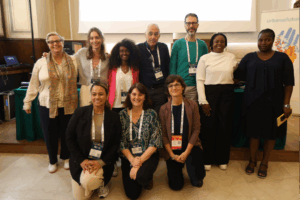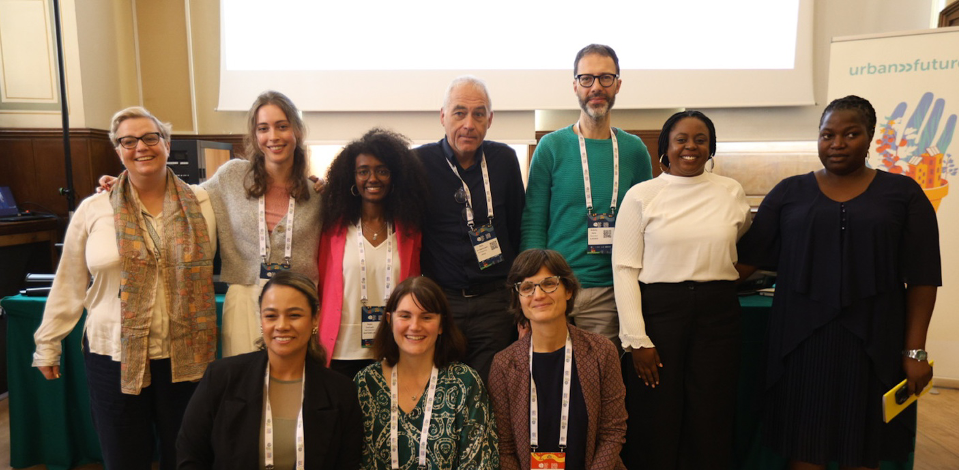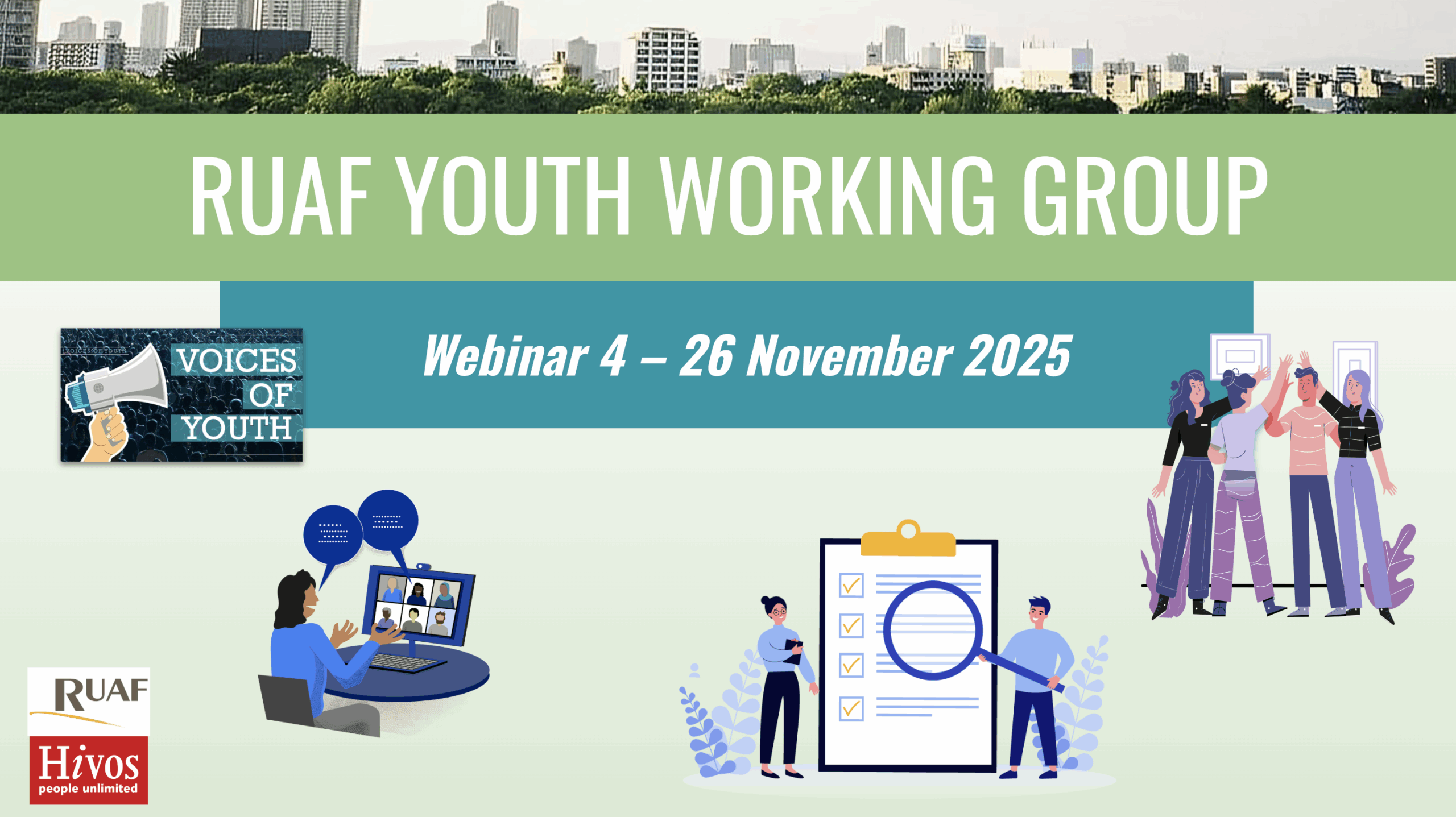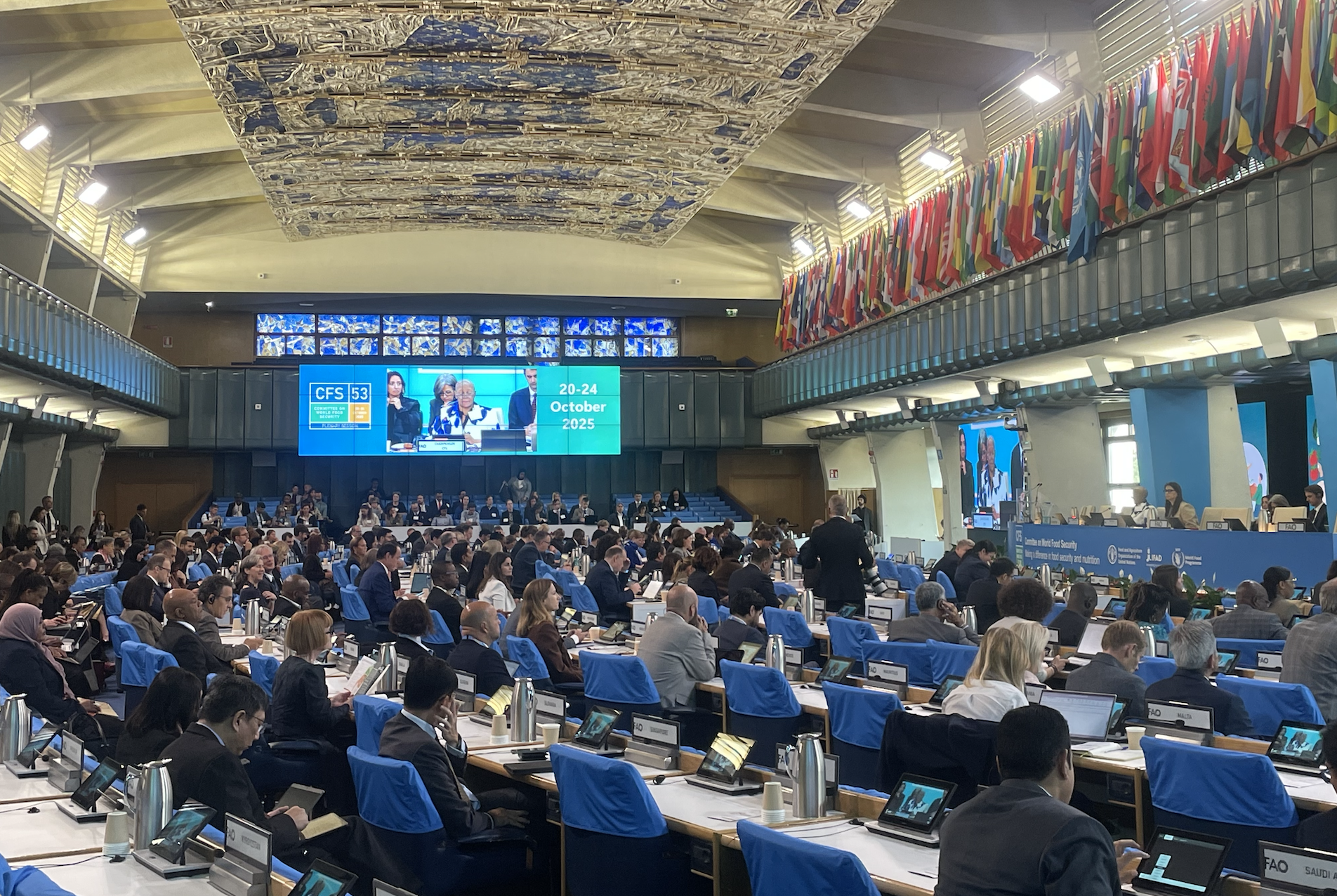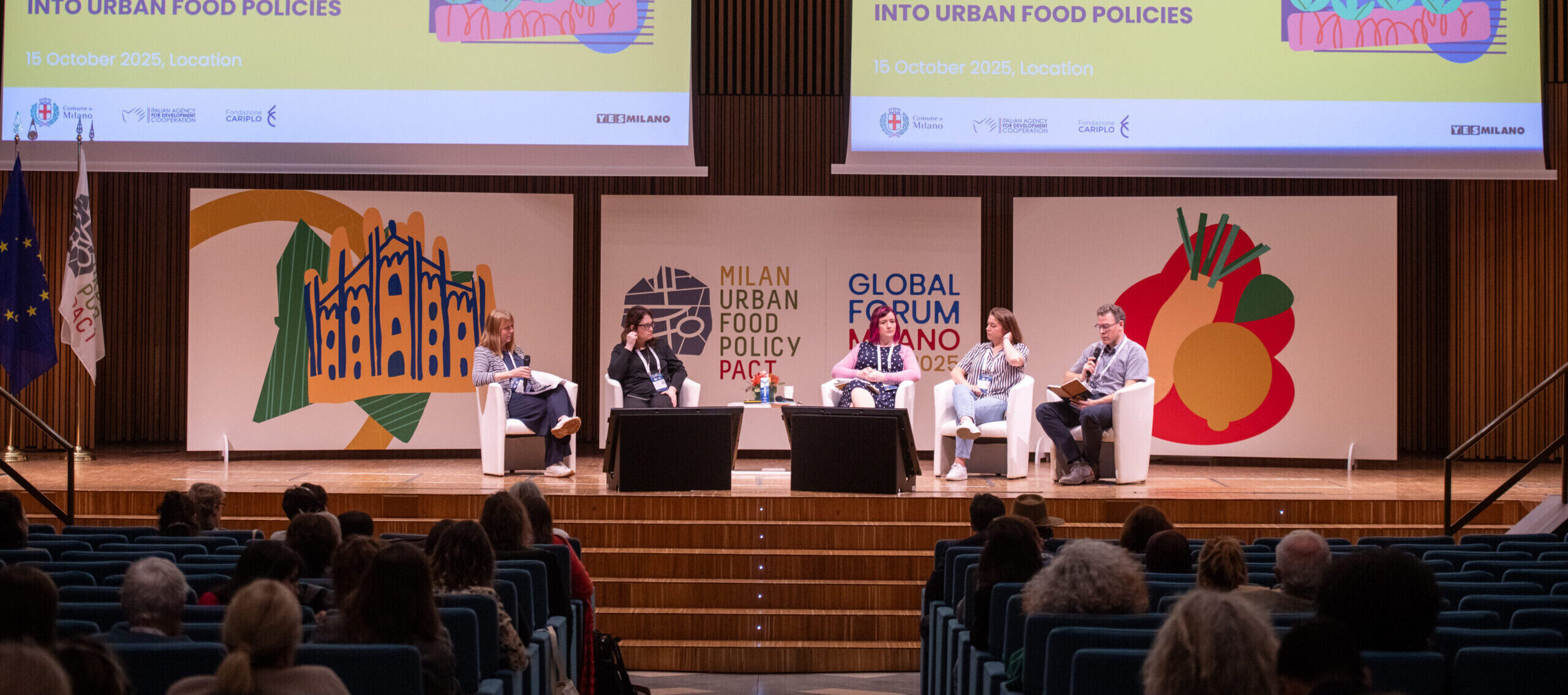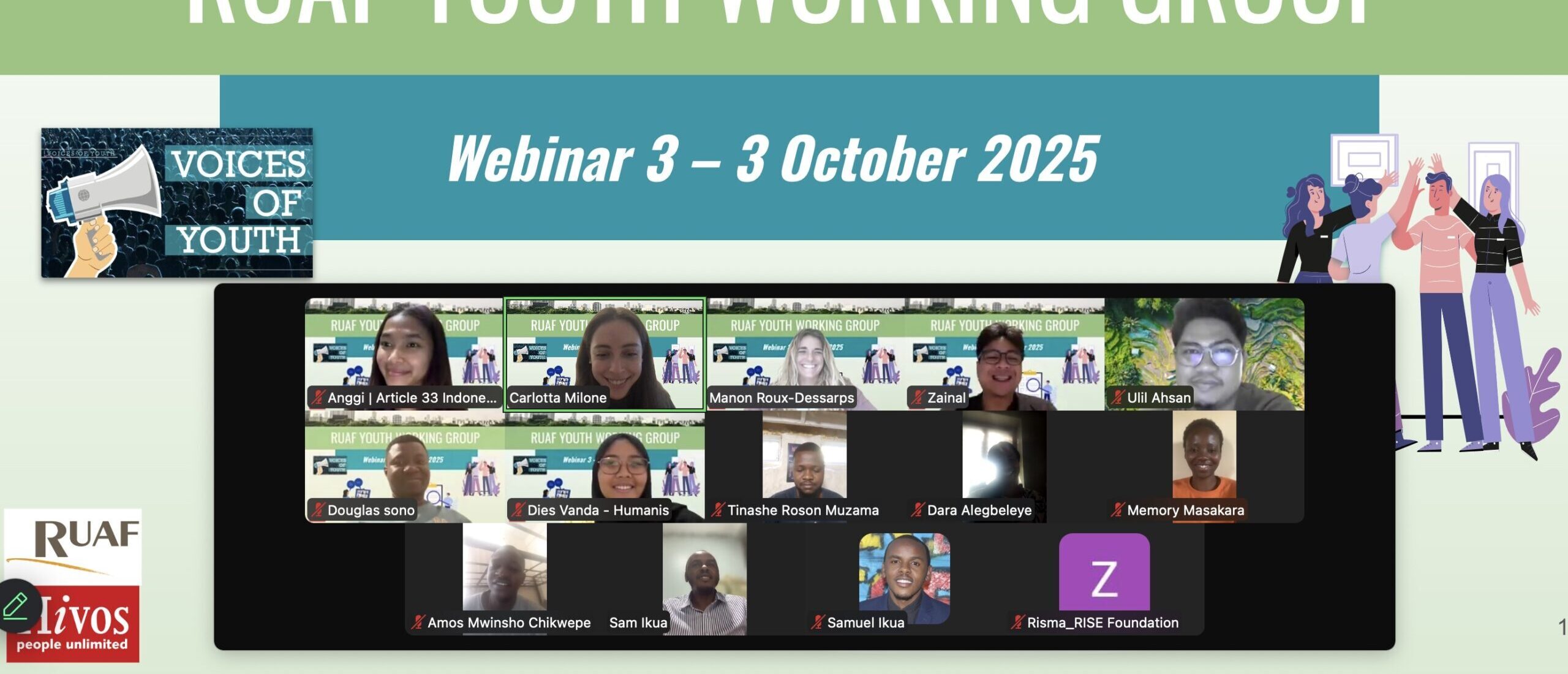Many of the struggles young people face in urban food systems stem from being left out of decision-making spaces, concluded panelists in a parallel session on youth agency co-hosted by RUAF at the 2025 Milan Urban Food Policy Pact (MUFPP) Global Forum. When young people are invited to shape agendas, rather than just listen, they play a critical role in determining how to transform food systems for their own futures.
On day four of the Milan Urban Food Policy Pact (MUFPP) Global Forum, RUAF joined forces with Hivos, ActionAid Italia, Rikolto, and Università degli Studi di Milano to co-host a lively parallel session on youth agency in building just and resilient urban food systems. City officials and young changemakers came together to exchange perspectives on opportunities and barriers to meaningful youth participation, showcasing inspiring ways to amplify young voices in urban food policy and practice.
Amid the plenaries, field visits and side events, our parallel session stood out for placing young people at the centre – not as beneficiaries, but as co-creators of food systems. As panelist Runyararo Esther Chibota, regional coordinator of the Hivos-led Urban Futures programme in Southern Africa said:
We often engage youth in a tokenistic approach at the end, like just ticking a box. […] Young people are the leaders of tomorrow and they need to participate in the food dialogues.
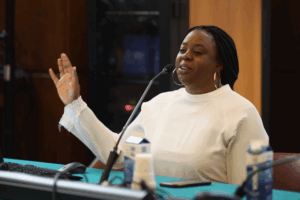
Voices from the session
The discussion, moderated by Charlotte Flechet (Rikolto), brought together knowledge from different organizations and projects about youth experiences in urban food systems. Taken together, these voices provided important lessons on how to include and empower young people.
First, Roberto Sensi (ActionAid Italia) shared compelling findings from a study on young Italians’ experiences of food poverty. He was followed by René van Veenhuizen (Hivos), who introduced the Urban Futures programme, and Runyararo Esther Chibota (Hivos), who spoke on behalf of youth organizers in Zimbabwe and Zambia about creating spaces for young people to mobilize change in urban food systems. [Watch a short video about this work here]
Two dynamic panels followed.
Panel 1 featured city representatives Nathalia Cardona from Medellín (Colombia), Halima Namubiru from Mbale (Uganda) and Cristina Sossan from Milan (Italy), who shared how their cities are working to build youth agency in food policy and governance.
Panel 2 brought together youth and city representatives in dialogue. Tegitu Casiraghi (AfriFOODlinks Youth Ambassador, Milan) and Runyararo Esther Chibota (Hivos) shared their experiences as young advocates and posed questions to city officials from Medellín, Mbale and Milan. The session was moderated by Carlotta Milone (RUAF), who also brought a youth perspective through her work on Urban Futures and her involvement with RUAF’s Youth Working Group.
This exchange of stories and reflections, both hopeful and critical, offered a glimpse into what real youth participation can look like when cities and young people meet as equals.
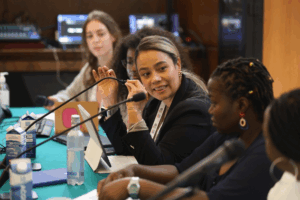
Key takeaways on building youth agency
From the conversations, six lessons emerged on how to better include and empower young people in food system transformation:
1. Change the narratives
For youth to truly see themselves as part of the food system, the story needs to change. Runyararo Esther Chibota noted: “Eating healthy in Africa is often seen as being ill. Eating indigenous food means being poor.”
Such narratives discourage young people from seeing food and farming as vibrant, innovative sectors. Changing this perception starts with celebrating stories of success. Young entrepreneurs, urban farmers and food advocates are redefining what it means to work in food. When farming and food policy are portrayed as tools for creativity, justice and pride, youth engagement becomes easier.
2. Make opportunities for youth participation visible and accessible
Tegitu Casiraghi said “Young people often just don’t know about the things happening”.
Her experience captures a widespread challenge: too often, youth are unaware of opportunities to get involved in urban food governance, even when they are open to youth participation.
Cristina Sossan, Milan city representative, acknowledged that while her team shares information on websites and social media, communication often fails to reach young audiences because it does not really connect with them. Cities need to reach youth where they are – through creative digital campaigns, relatable messaging and visuals that spark curiosity.
There is also a structural dimension. In some places, like Italy, under-18s cannot officially participate in certain initiatives due to insurance or financial barriers. Creating real access means addressing these practical challenges so participation becomes a right, not a privilege.
3. Invite young people into spaces where they can experience and contribute – at all levels
Tegitu Casiraghi shared, “I joined the project after it had already started, so for me, it was a bit hard to understand the topic of AfriFOODlinks, but after coming to this event I understand it better”.
As an AfriFOODlinks Youth Ambassador, Tegitu acts as a bridge — sharing her experiences with food on social media and engaging with local food-related events, such as museum exhibitions, markets, and community projects.
Although she was already involved in the project, being invited to a global event deepened her sense of connection and purpose. Her story highlights the importance of inviting young people to witness and participate in spaces first-hand, at all levels, where they gain exposure to how food systems operate and where their voices fit in.
4. Recognize and work with youth priorities, not against them
“You want them to participate,” said Runyararo Esther Chibota, “but maybe it’s the same time they need to be in school or working”. She added, “If we want to get the attention of young people […] we need to factor in that they’re a whole person”
Many young people want to contribute but they face competing demands on their time, such as school, jobs or family responsibilities. If those offering participation opportunities do not consider these realities, youth engagement quickly drops.
Nathalia Cardona, Medellín city representative, emphasized the importance of designing initiatives that fit into young people’s lives. This means explaining why food policy matters to them personally, linking participation to their daily experiences, and involving families and teachers so they understand its value.
5. Build a sense of belonging and community
A strong insight emerging from the session was that young people hesitate to act alone. They may be shy, unsure or simply unaware of where to start. Discovering projects alongside peers, however, makes engagement easier and more meaningful.
Collective experiences – such as community gardens, youth councils or mentorship groups – build solidarity and confidence. Empowering youth is not only about inviting them into existing spaces, but also co-creating new ones where they can connect, exchange ideas and learn together.
6. Keep youth engagement dynamic
A common challenge shared by the cities representatives is maintaining youth engagement over time. Young people’s interests evolve, life circumstances change and age limits mean that new waves of participants must continually be brought in.
To keep momentum alive, city programmes must be flexible and regularly updated to remain appealing to youth. Initiatives that celebrate milestones, showcase young leaders and connect with broader youth movements can also help sustain enthusiasm and participation. As Cristina Sossan (Milan) noted, youth are more likely to stay engaged when they see tangible results — for instance, by visiting farms, canteens, or food hubs where the impact of their contributions is visible.
7. Move from recipients to co-creators
Youth engagement cannot stop at consultation. It must lead to shared ownership. As Halima Namubiru, the representative from Mbale, emphasized, youth should be at the forefront of every programme and at all levels – not as participants filling seats, but as partners shaping content and implementation.
This shift requires deliberate investment in training, mentoring and clear routes for young people to move from volunteer to decision-maker. Upskilling youth in leadership, communication, and policy advocacy helps them sit confidently in governance spaces. Additionally, stakeholders must ensure these spaces are ‘safe’ and free from power imbalances, so young people can speak openly — and know their views will be heard and acted on.
When young people are equipped and supported, they stop being recipients of change and start being agents of it.

See youth voices in action – explore the experiences and insights of young people working in urban food systems through these videos:
- Sandipa Bhandari, former chairwoman of the youth council in the City of Mechelen, Belgium, and youth ambassador for RUAF partner Rikolto‘s Week of Good Food 2024, explains how youth can build agency in urban food systems, and why policy makers must listen. [Watch here]
- AfriFOODlinks youth ambassadors share what they would change about food systems and their messages to city leaders. [Watch here]
Beyond the MUFPP Global Forum
RUAF remains committed to ensuring that young people’s priorities and perspectives are reflected in urban food system governance. Building on the discussions from the Milan Global Forum and insights from its Youth Working Group, RUAF is developing new resources to support youth engagement in urban food systems.
Stay tuned to learn more, and reach out if you would like to be part of this journey toward more inclusive, youth-driven urban food futures.
